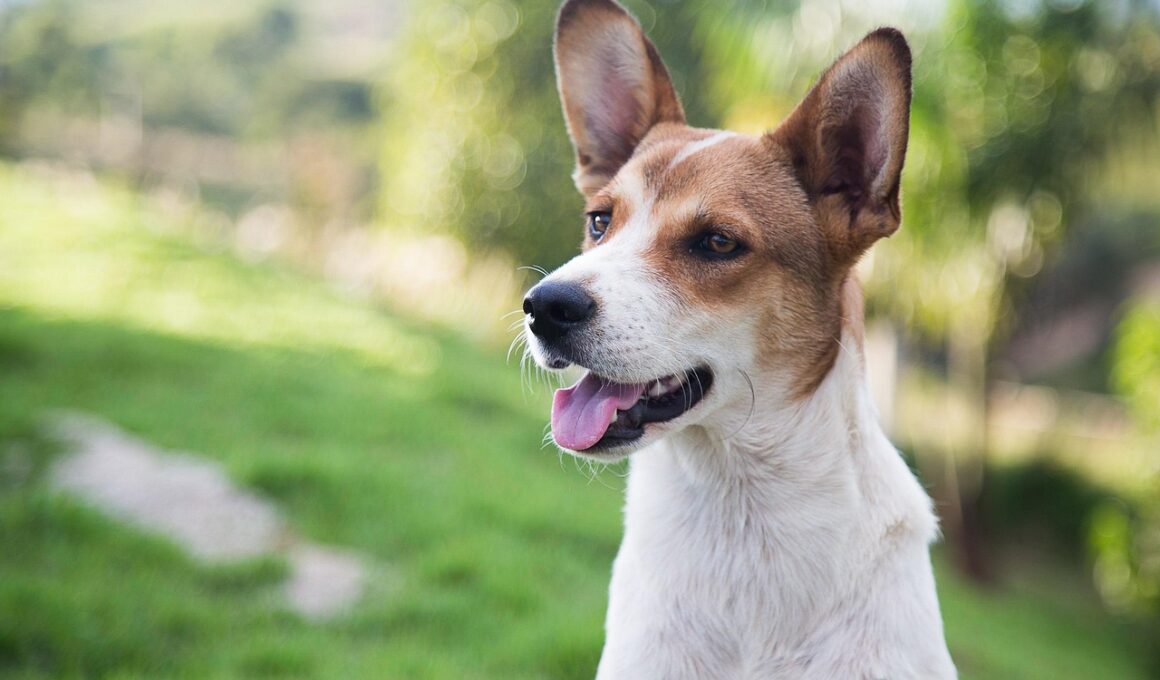Tips on Finding the Right Post-Adoption Support Group for You and Your Dog
Finding the right post-adoption support group can significantly ease your transition into being a responsible dog owner. Start by researching local groups in your area by using online search engines or social media platforms. Ask for recommendations from your dog’s adoption agency or friends who own dogs. Online forums can be great places to gather information about various support groups. Additionally, check if these groups have a website that outlines their mission and available resources. It’s essential to identify what you need from a group; are you looking for training advice, help with behavior issues, or simply a community of dog lovers? Understanding your needs helps narrow down your choices. Take time to read reviews and testimonials from previous members. The experiences shared can give you insights into what to expect. Keep an eye out for groups that foster inclusivity and support, where members feel safe sharing their concerns. Finally, don’t hesitate to attend a couple of meetings to see if the atmosphere aligns with your expectations and if it feels like a good fit for you both.
After finding potential groups, consider checking their meeting schedules. Consistency is crucial for fostering relationships with both members and their dogs. Some support groups may meet weekly, while others may gather monthly or at irregular intervals. Assess whether the group’s schedule aligns with your availability. Look for groups that offer a variety of activities, including training sessions, dog outings, and educational workshops to keep engagement high. Communication is another vital aspect. Inquire whether the group has active channels online or via email to facilitate easy interaction between meetings. Social media groups can also be beneficial for sharing experiences. Furthermore, observe how welcoming the group is during your first visit; is everyone friendly, or do they seem exclusive? A good support group encourages dialogue and is open to diverse dog owner experiences. You want a community where both you and your dog will feel comfortable and valued. Remember that joining a group should be a positive experience aimed at enhancing your relationship with your pet. Connecting with like-minded individuals can create lasting friendships while providing valuable resources.
Evaluating Group Activities
When evaluating post-adoption support groups, consider their activities and how they align with your interests. This helps ensure you participate willingly while gaining valuable insights for your dog’s development. Look for groups that offer educational pamphlets or workshops. Topics may range from training techniques to understanding canine behavior. By learning from experts in the field, you can address common challenges. Additionally, some groups host social events, allowing dogs to interact. These environments can help develop your dog’s social skills, particularly if they’re anxious or shy around other pets. Also, family-friendly activities encourage bonding among dog owners. This fosters a strong sense of community essential for all members. Be open-minded when attending events; you may discover unique methods to bond with your dog better. If the group offers guest speakers from the dog training community, this can also give you new perspectives on common issues. An inclusive group will likely encourage you to seek help and provide support as needed. Remember to keep notes during discussions that resonate with your concerns. Tracking your dog’s progress can guide conversations in the future.
Before committing to a support group, it’s wise to assess the qualifications of its leaders or facilitators. Evaluating their experience in dog training and behavior is key. Enthusiastic leaders often enrich group discussions and provide knowledgeable insights. Assess their backgrounds, including whether they have formal training or certifications in dog care and handling. Certifications ensure they possess essential skills for effective group management. Additionally, leaders should foster a welcoming atmosphere, encouraging open dialogue among all members. When leaders are approachable, individuals are more likely to share experiences and seek advice. Pay attention to how well they address concerns raised by members during meetings. This demonstrates their commitment to fostering a supportive environment. Moreover, evaluate how they handle conflicts or disagreements. A capable leader should navigate discussions where differing opinions may arise, ensuring respect and mutual understanding among members. Group dynamics influence your overall experience and involvement significantly. Ultimately, a well-trained leader can guide a group in fostering a supportive environment that will benefit both you and your dog. Look for enthusiastic, knowledgeable individuals genuinely committed to creating a welcoming community.
Leveraging Online Resources
In today’s digital age, numerous online resources are available to complement your post-adoption support group experience. Social media platforms offer pages and groups dedicated to dog owners. Here, members share invaluable knowledge and discuss common challenges while providing mutual encouragement. If you’re not finding enough support locally, consider joining international or national online communities for dog owners. These groups often provide resources such as webinars, tutorials, and informative articles tailored for dog care. Additionally, leverage video-sharing platforms like YouTube for training methods. Numerous channels feature dog trainers and behaviorists sharing advice that often aligns with group discussions. These videos can also serve as conversation starters at your support group meetings. Explore blogs and websites run by experienced dog owners, trainers, or veterinarians. Many share personal stories, tips, and best practices, offering unique perspectives built on shared experiences. Email newsletters from top dog training organizations can also deliver regular tips for improving your relationship with your pet. Utilizing these online resources in tandem with your support group can significantly enhance your learning and the bond with your dog.
As you consider various support groups, remember that fit is essential; what works for one person might not be suitable for another. Take time to reflect on your personal preferences, communication style, and approach to not only dog care but also interacting with others. If you feel comfortable sharing your pet’s progress with others, a more engaged group may suit you well. Conversely, if you prefer a quieter environment, seeking a smaller group can provide a more intimate setting. Actions speak louder than words; pay attention to the group’s overall atmosphere during your visits. The chemistry among members can make a substantial difference. Join discussions allowing room for every member to speak while fielding respect for diverse opinions. It’s imperative to feel supported, understood, and encouraged, making the post-adoption journey smoother. Remind yourself that there is no shame in seeking assistance when necessary. A good support group can empower you through challenges while celebrating successes. Prioritize your feelings and those of your dog as you journey deeper into dog ownership and community involvement.
Maintaining Active Participation
Once you’ve selected a post-adoption support group, maintaining active participation is crucial for you and your dog’s growth. Regular attendance allows you to engage fully with others, exchange ideas, and gain knowledge tailored to your needs. Being involved also helps you form connections that may lead to friendships. On the flip side, your dog can benefit from socialization with other pets, which is vital for behavioral development. To ensure you stay committed, consider creating a schedule that incorporates group events into your weekly routine. Multipurpose visits can increase your involvement in the group. You may also find opportunities to volunteer or host events, which can enrich the community experience. As you create new bonds, offer to share your experiences and suggestions during discussions; it enhances the overall dynamic. Remember that growing together with your dog fosters a strong partnership. Maintaining an open mind will enable you to adapt to changing circumstances, particularly as your dog’s behavior evolves. Plus, don’t shy away from reaching out to other members outside of meetings; sharing experiences can foster deeper connections beyond group boundaries.
In conclusion, finding the right post-adoption support group can provide invaluable resources for both you and your dog. Utilizing research methods, engaging in group activities, assessing leadership, and leveraging online materials aids in making the best choice. Prioritizing personal comfort helps ensure that you feel included and valued while fostering a supportive community. Going beyond the regular meetings to stay involved and committed enhances the post-adoption journey. Share your pet’s experiences while encouraging others, and remain open to learning from fellow owners. This reciprocal process solidifies community bonds while enriching your journey as a dog owner. The right support group is crucial in ensuring positive experiences filled with learning and joy. As your dog grows and evolves, so will your relationships within the group. Remember to have fun with your dog along the way, as mutual trust and bonding grow less timesolloponned treated unfairly. Embrace the journey, and enjoy the meaningful connections you create alongside your dog throughout the entire process of pet ownership.


